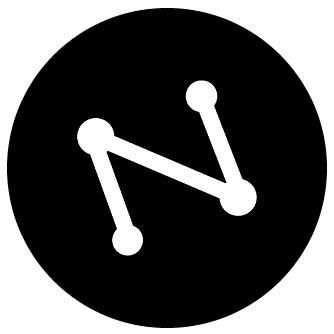
Having a customizable medical clinic system is essential for optimizing the efficiency and quality of healthcare services in the United States. This is because the needs and workflows vary from one clinic to another, and having an adaptable system is crucial to meet these specific demands. Customization allows the medical and administrative staff to configure the software according to their preferences and needs, resulting in a more efficient and productive work experience.
Furthermore, a customizable system also contributes to the security of patient data, as it can be adapted to meet the privacy and compliance requirements of local and national regulations, such as the Health Insurance Portability and Accountability Act (HIPAA) in the United States. This ensures the confidentiality of health information and protects the clinic's reputation.
Another significant benefit is the improvement in communication between healthcare professionals and their patients. With the ability to customize medical records, appointments, and treatment histories, clinics can offer more personalized and effective care, resulting in more satisfied and loyal patients. In summary, a customizable medical clinic system is a fundamental tool for enhancing efficiency, security, and patient satisfaction, making it a valuable investment for any healthcare facility.
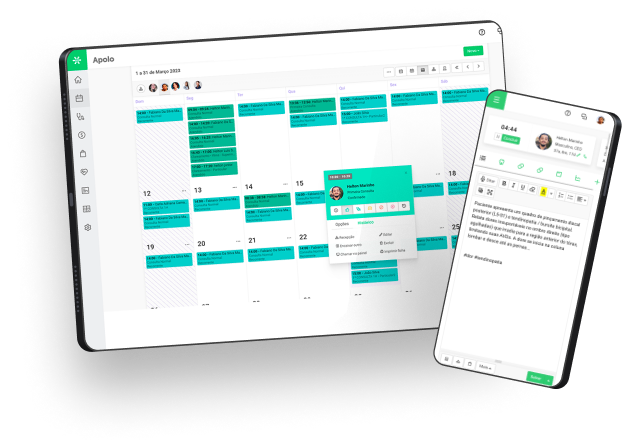
Benefits of Customization in Medical Clinics
- Enhanced Efficiency: Customization allows the management system to be tailored to the specific workflows of each clinic, making operations more efficient and productive.
- Data Security: The ability to adapt the system to local and national regulations, such as HIPAA, ensures the security and confidentiality of patient data, avoiding legal issues.
- Personalized Care: With medical records, appointments, and treatment histories configured to the clinic's needs, healthcare professionals can offer more personalized and effective care.
- Patient Satisfaction: Customization contributes to more effective care, resulting in more satisfied and loyal patients, strengthening the relationship with the clinic.
- Operations Optimization: Customizing the system allows for the improvement of internal processes, such as inventory management, appointment scheduling, and billing, making the clinic more efficient and cost-effective.
- Continuous Flexibility: A customizable system can evolve alongside changes in the clinic's needs, ensuring that the IT infrastructure remains aligned with constantly evolving operations.
In summary, customization in medical clinics offers a range of benefits, from operational efficiency to patient satisfaction, making it essential for the success and quality of healthcare services.
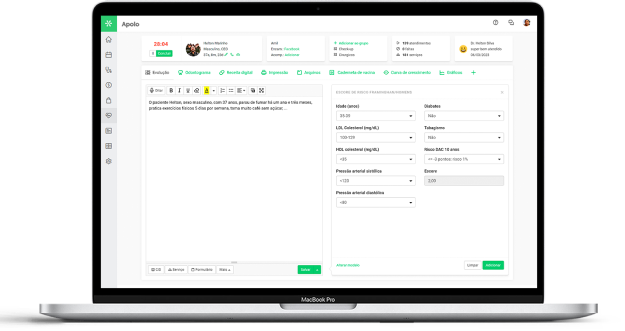
Customizable Features of the Ninsaúde Clinic System
Custom Adaptability: The Ninsaúde Clinic system offers a wide range of customizable features, allowing clinics to adjust the management software according to their specific needs. This includes customizing forms, data fields, reports, and workflows, making administration more efficient and effective.
Artificial Intelligence in Diagnosis: A notable feature is the integration of artificial intelligence. The system assists doctors in diagnosis by suggesting International Classification of Diseases (ICD) codes based on patient information and symptoms, speeding up the diagnostic process and improving treatment accuracy.
Personalized Communication: Ninsaúde Clinic allows for the customization of messages via WhatsApp and email, enabling clinics to communicate more effectively with patients. Additionally, the system provides appointment confirmations through links, simplifying the scheduling process and giving patients more autonomy.
Heatmap: Another notable feature is the heatmap, which provides valuable information about the origin of patients. This interactive map highlights areas with the highest demand for medical services, helping clinics expand their services by identifying regions with high medical service demand.
Personalized Anamneses and Quick Shortcuts: The system allows clinics to create their personalized anamnesis, adapting medical history questionnaires to their specific needs. In addition, the use of pre-made quick-action shortcuts streamlines documentation and enhances the patient experience.
Voice Transcription in Consultation: Another notable feature is the voice transcription functionality on the consultation screen. Healthcare professionals can activate this function to speak directly to the system, streamlining the recording of information accurately and quickly, without the need for manual typing.
It's important to note that these are just some of the unique features of the Ninsaúde Clinic system, reflecting a commitment to customization, efficiency, and quality in the management of medical clinics. These customizable features demonstrate a continuous pursuit of improvements and innovations in the healthcare sector.
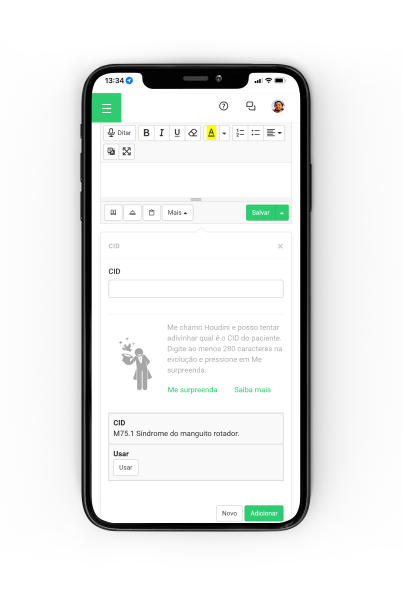
User-Friendly and Integrated
Ease of use and integration capabilities are essential attributes of a healthcare clinic management system in the United States. Choosing a solution that is intuitive and simple to operate not only saves time on training but also improves the efficiency of daily operations.
A user-friendly interface allows healthcare professionals and staff to quickly adapt to the new technology, facilitating tasks such as appointment scheduling, medical record keeping, and billing. Moreover, integration is crucial for effective coordination between different departments and systems.
A system that seamlessly integrates with medical equipment, laboratories, and other healthcare systems ensures that data is always up-to-date and accessible in real time, resulting in more agile and quality service delivery. Therefore, the combination of ease of use and comprehensive integration in a management system is a significant advantage for clinic efficiency and quality of care.
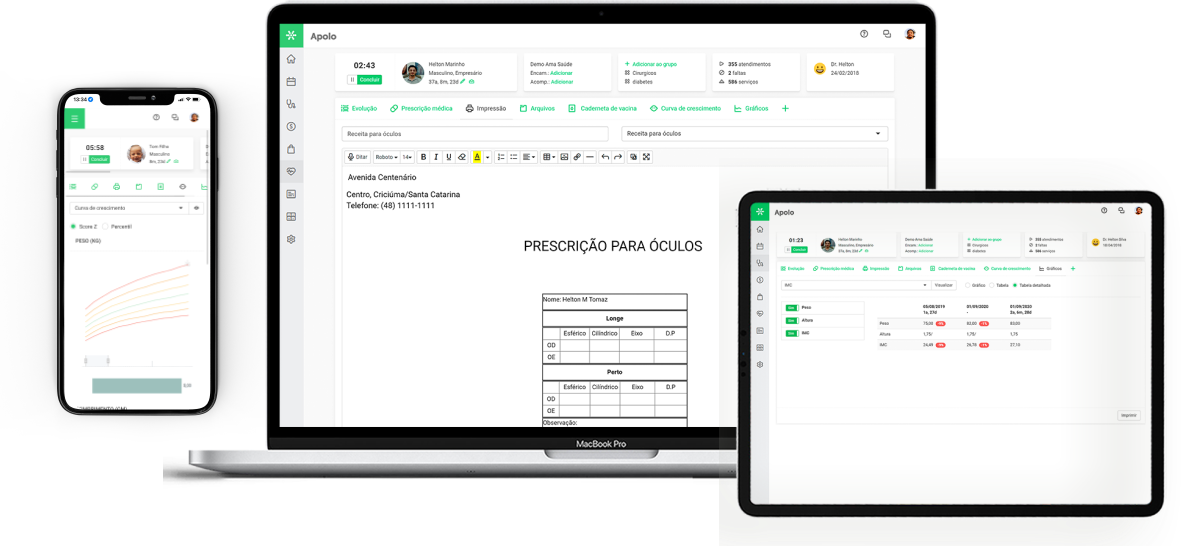
Steps to Implement the System in Your Clinic
Implementing a new management system in your medical clinic in the United States may seem challenging, but with step-by-step guidance, the process becomes more straightforward and effective. Firstly, it's crucial to evaluate your clinic's specific needs and identify which functionalities are essential to optimize your operations. Then, select a system that meets these requirements, considering ease of use and customization capabilities.
The next step involves training the team. Providing comprehensive training for doctors, nurses, and administrative staff is essential to ensure that everyone is familiar with the new platform. This accelerates integration and reduces resistance to change.
After selecting the system and training the team, the implementation phase begins. During this stage, it's important to customize the system to suit your clinic's needs, configuring fields, forms, and specific workflows. Ensure that all critical data and information are accurately migrated to the new system.
The final phase is continuous optimization. Monitor the system's performance, collect feedback from the team and patients, and be willing to make adjustments as needed. A management system is an ever-evolving tool that should adapt to changes in the clinic and market demands.
By following these steps, the implementation of the system in your clinic becomes a manageable and successful process. Technology can be a powerful ally in improving efficiency and delivering high-quality services to patients.

Conclusion
In conclusion, adopting a healthcare clinic management system offers a wide range of benefits that can drive the success and prosperity of the institution in the United States. From streamlining internal processes to enhancing patient care, implementing an efficient system can save time, reduce errors, and improve the overall effectiveness of the clinic.
Overall, adopting a management system is a valuable investment that can lead to substantial improvements in operational efficiency and the quality of healthcare provided. As a result, medical clinics can thrive, offering high-quality care and improving the experiences of both patients and healthcare professionals. Therefore, when considering the implementation of a management system, it's essential to evaluate its benefits and how it can contribute to the clinic's success.
If you are looking for a management system that simplifies the administration of your medical clinic in the United States, consider the Ninsaúde Clinic system. With customizable features, practical integrations, and effective training, it is a smart choice to streamline processes and enhance the quality of care.
Did you find the tips in this article helpful? Keep following the Ninsaúde Clinic blog for more content like this.

